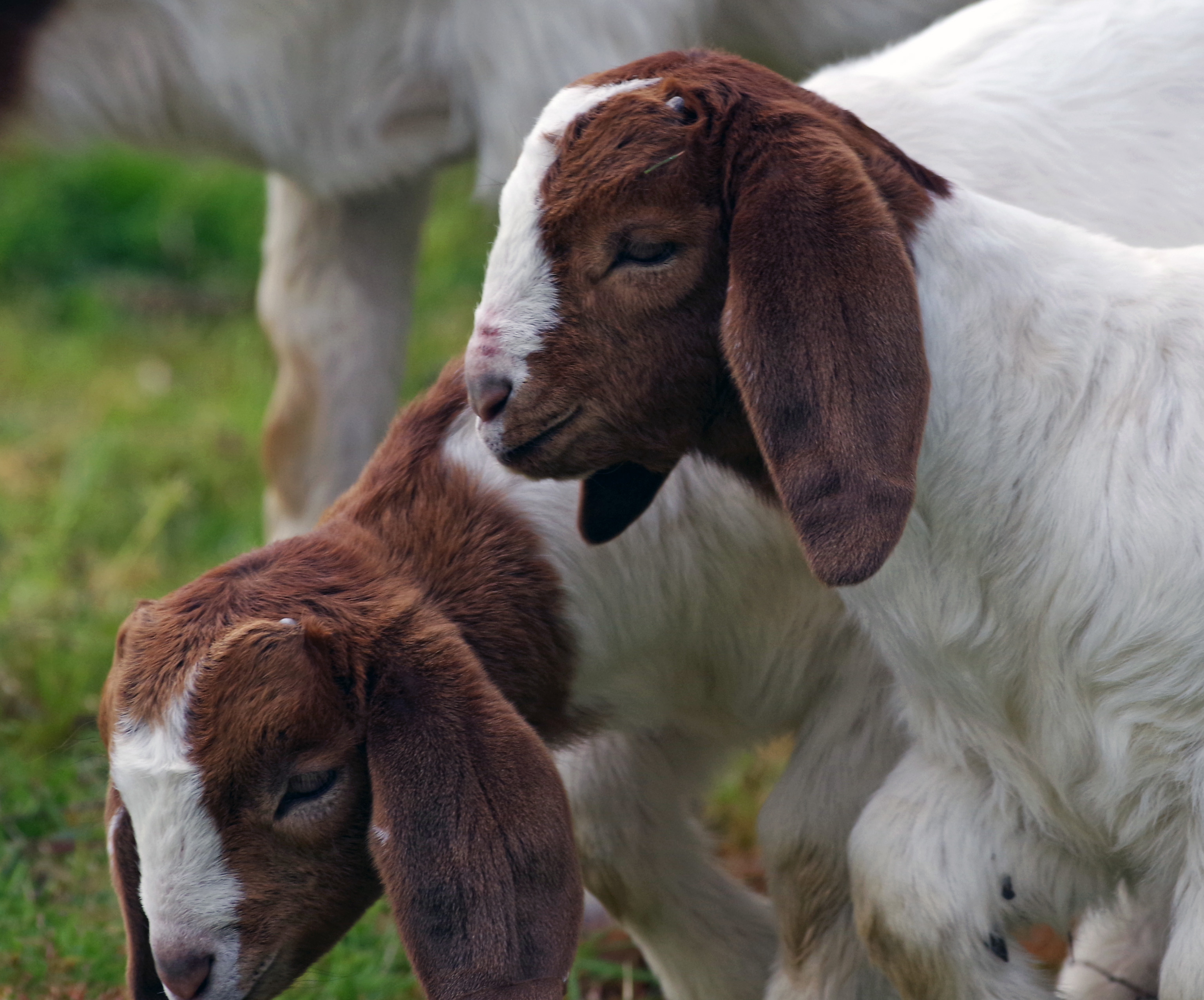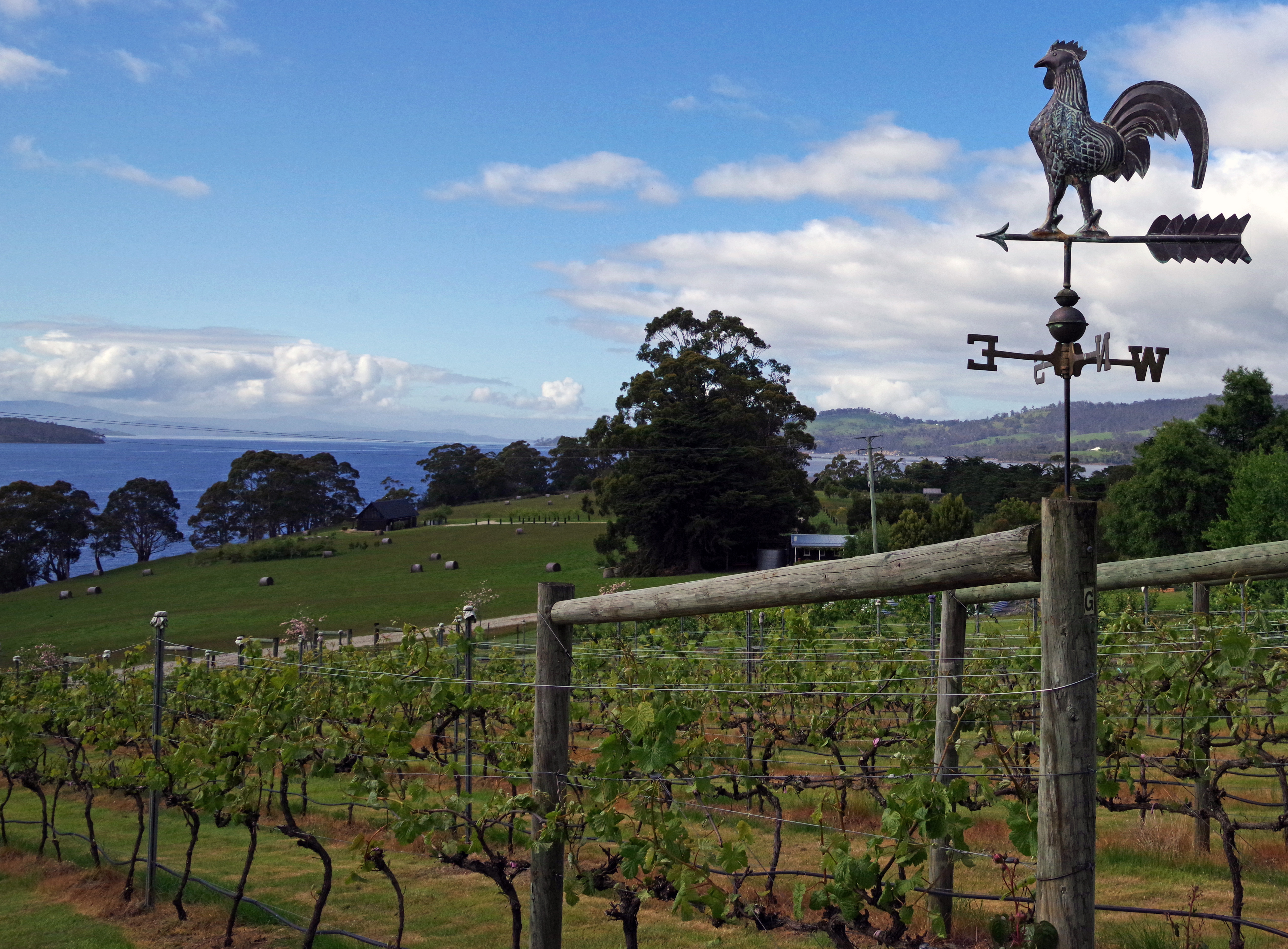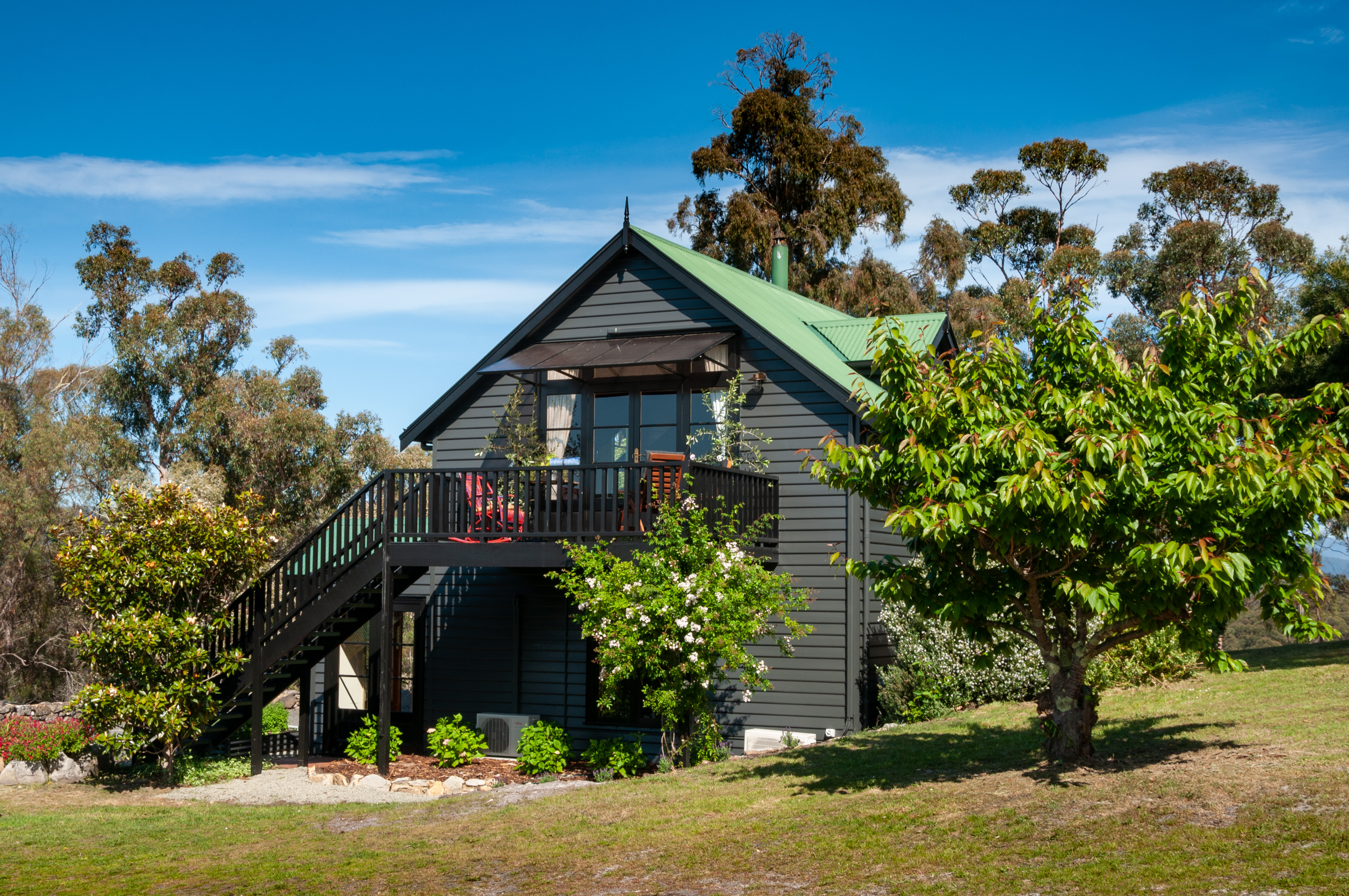Couple on bold quest to regenerate eco-system
TOWARDS the mouth of the Huon River is Beaupre farm, a Boer goat stud with a purpose: regenerative farming and restoring land function.
Beaupre is owned by Colin and Christine Bishop who purchased the property six years ago with the goal to give back to the land and community.
The 16ha farm boasts beach frontage, wetlands, native forests, an orchard and vineyard, and Beaupre cottage, which serves as a cosy retreat for guests looking to reconnect with nature.
When the Bishop’s purchased the property six years ago, it was clear a significant investment was needed to eradicate the high density of weeds across the farm.
“When we first arrived, we knew nothing about landscape function and Tasmanian weeds," Mrs Bishop recalled.
“All we saw was these beautiful yellow flowers, but those flowers turned out to be gorse.”
Gorse was a declared weed under the Tasmanian Weed Management Act in 1999 and according to Weed Australia it is known as one of Australia’s worst weeds due to its invasiveness, potential for spread, and environmental impacts.
The Bishop’s soon adopted sustainable and regenerative farming practices to begin to heal, restore and conserve the farm’s diverse and fragile ecosystems for future generations.
“It's such a pretty environment, but it's really vulnerable, so we needed to find ways to naturally look after the land and restore it.”
The couple found that previous industrial agricultural practices had significantly impacted the landscape function at Beaupre.
“We saw diminished topsoil, disrupted soil-mineral cycles, and changes in grassland composition.”
Their first step after arriving at the farm was to figure out how best to manage the land but also run a farm.
As well as producing around 45 goats, Beaupre has apples, plums, grapes, pears and much more which they share with the community.
“We were interested in conservation farming, and so we decided to produce goats on the farm because we didn't want any hard-hooved animals,” Mrs Bishop said.
“We wanted something gentler on our sandy soils, munching away on the gorse and weeds without the need for herbicides.”

The goal for the couple was to produce genetically superior Boer goats that would thrive on organic pastures, resist disease, and embody traits conducive to Tasmania's environment.
“We want our goats to be happy, so we practice rotational grazing, mimicking the natural cycle of grazing animals.”
“Goats are herd animals; they are highly intelligent.”
The Bishop’s make sure to monitor their soils every couple of years to see what the PH and nutrients levels, so they know how to better supplement the health of their goats.
Recognising the value of returning everything from the land to the land, they use thermolytic composting and apply compost tea to their pasture.
“What we’ve found is that sometimes the seeds of the weeds eaten by the goats will go through their poo and will then germinate and then continue to spread, so the thermolytic compost which heats up to 60-70 degrees kills all the seeds and then we can safely spread everything out without reinfesting the land.”
In addition to running the farm with her husband, Mrs Bishop has been undertaking a graduate certificate in regenerative agriculture and uses her knowledge and background in epidemiology and biostatistics to approach farm management.
She has also travelled the world as an epidemiologist with the World Health Organisation (WHO) and having lived in nine different countries, settling in Beaupre farm has been a welcome experience for the family.
On the Beaupre Peninsula, the Bishops are aware of their surroundings’ vulnerability to climate change.
“We're on a coastal route, so we've seen some shifting of sand along the coastal boundaries,” Mrs Bishop said.
Her hope for the future is to keep looking after the land but she acknowledges the challenges posed by climate change.
“Scientists are still discovering the implications of climate change on our communities.”
“An increase in storms and the possibilities of extended droughts require us to plan ahead.”
“The complexity of farming nowadays is significant, it’s not just business as usual anymore, it can’t be.”
But amidst the challenges, the Bishop’s remain optimistic.
“We need to shift away from thinking that we're operating in isolation. It's communities that will have to band together and address these concerns.”
Mrs Bishop said the farm’s conceptual framework is underpinned by Indigenous knowledge and values, and their continued learning from monitoring and evaluation.
Drawing inspiration from Aboriginal land management practices, Mrs Bishop stresses the importance of diverse perspectives.
“It's not our land; we're just custodians,” she said.
“Engaging with local indigenous communities is crucial for us.”


As the Bishop’s reflect on their journey, they are driven by a sense of responsibility as custodians of the land, honouring its heritage and embracing its potential for regeneration.
Their farm, with its focus on holistic management and integrated pasture management, serves as a model of conservation farming, prioritising soil health and biodiversity.
“Understanding risks and assessing the land's impact on future landscape function and ecosystems is crucial,” Mrs Bishop said.
As they look to the future, the Bishops remain steadfast in their mission to restore the land and support the community.
“It comes back to the community, if people weren’t so willing with their time and their knowledge to be able to share with us their practises we would never be where we are today.”
“It’s taken 200 years to diminish the land and it will likely take 200 years to restore it so having a long term perspective is important.”

Add new comment